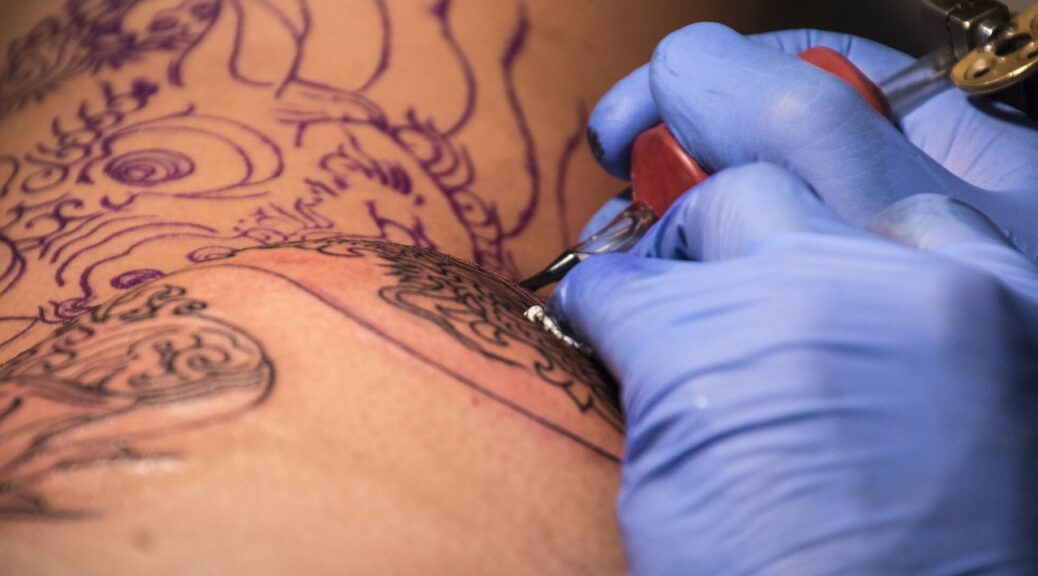Scented Lotions and Adverse Tattoo Reactions
Klein Buendel Senior Scientist, Dr. Barbara Walkosz, is a co-author on a recent publication in the Dermatology Online Journal. In the manuscript, Dr. Walkosz and her co-authors discuss how scented lotions may cause scaring, premature aging, and fading of tattoos.
Tattoo aftercare instructions are often provided to clients after receiving a tattoo. However, aftercare instructions can vary by studio and are often not universal or supported by research. The authors examine a case study of a man with no pre-existing skin conditions, family history, allergies, or other factors, who developed a rash on his new tattoo. Upon questioning, it was discovered that the client had applied a scented lotion to the new tattoo, at which point he began to experience problems with scabbing and fading tattoo ink.
The authors provide a case discussion about how the use of a scented lotion may have caused a negative, adverse reaction to the new tattoo and discuss the importance of treating a new tattoo as flesh wound. The full discussion and conclusion can be found in the publication.
This research team was funded by a grant and supplement from the National Cancer Institute (CA206569; Dr. Barbara Walkosz and Dr. Robert Dellavalle, Multiple Principal Investigators). Authors also include, Dr. Adrian Pona from the Department of Dermatology at University of Colorado School of Medicine and the Department of Internal Medicine at the Vidant Medical Center of East Carolina University; Dr. Cristian Gonzalez from the Department of Dermatology at University of Colorado School of Medicine; and Dr. Robert Dellavalle from the University of Colorado School of Medicine and the U.S. Department of Veterans Affairs Rocky Mountain Regional VA Medical Center Dermatology Service.

